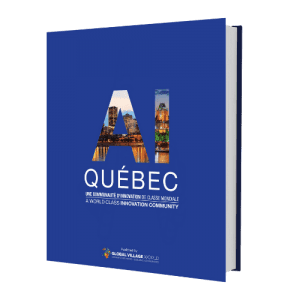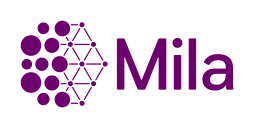My first passion will always remain understanding intelligence. This includes the artificial intelligences we are currently developing, but the natural ones as well. In recent years, my thinking about artificial and human intelligence has hinged on AI for social good. How can we ensure that what we do will benefit society, and what happens when things go wrong?
AI has vast potential in many areas, but it can also be misused and lead to decisions that could harm society and our environment. As a machine learning researcher, I think of this as an alignment problem – how can we align AI behavior and the activities of economic actors with human values and public good?
One way we can tilt behavior in a direction that will be better for society is at the government level. If we are to continue our pursuit of innovation in the face of threats to humanity, we must establish an AI strategy bolstered by government action.

AI & Global Governance
AI is disrupting almost every sector and, in the coming decades, will likely lead to job creation and significant economic growth. Such impacts are also transforming healthcare, education and how we protect the environment.
Just a Quick Note:
InnovationsOfTheWorld.com has partnered with Trade License Zone (TLZ) to support global innovators looking to expand internationally. Take advantage of the UAE’s Free Zones—enjoy streamlined setup, low corporate taxes, and a strategic gateway to the Middle East and beyond.
Get Your UAE Free Zone License Fast & Easy!My 30 years of research have shown me that knowledge sharing is a driving force for R&D and essential for its exponential growth rate. Governments should encourage a culture of open science between academia and industry. Enhanced coordination and government funding of innovation could incentivize companies to deploy AI with positive social impact, promoting openness and transparency to maximize the return on investment.
Alongside this push for open science, successful AI innovation is highly dependent on access to appropriate data, but certain barriers due to privacy and competition can block its potential. Governments can intervene to facilitate access to data by researchers and should explore avenues to encourage the responsible sharing of information between companies and from companies to academics, using appropriate licenses.
Investing in Research Excellence
The demand for AI talent is growing fast and widening a skills gap as AI transforms businesses and reshapes jobs. This requires an outward-looking and forward-looking education system broad in scope – from public education about AI and substantial investments in workforce upskilling programs, to university training of top-tier AI talent, thus nurturing the next generation of teachers and tech entrepreneurs. Global AI governance centred around inclusive development where researchers, educators, startups and other groups engage in the broader social dialogue alongside policy-makers and private firms is vital for facilitating innovation ecosystems ripe for expansion.
Competition to attract and retain AI talent is increasing globally as the world braces for its economic impact. It is important to invest in curiosity-driven AI research, support multi-stakeholder partnerships and provide future AI leaders with scientific visibility.
Mila and the Canadian AI ecosystem are fortunate to benefit from a government strategy that prioritizes AI innovation. By sustaining our growth, we can push boundaries and maintain scientific leadership in developing novel approaches to AI and machine learning. Today, Mila rallies more than 500 researchers who are improving our understanding of principles behind AI and developing tools to help the public visualize climate change, enhance speech recognition technology, improve health outcomes and ramp up drug discovery.
The development of responsible AI will always be at the heart of everything Mila does. Moving forward, I hope that institutes like Mila and the private and public sectors will continue to support and establish relations grounded in transparency and openness. Ahead of these transformations, we must work together to make the best collective decisions to ensure beneficial and advantageous outcomes for all.
Yoshua Bengio est professeur titulaire au Département d’informatique et de recherche opérationnelle de l’Université de Montréal, ainsi que fondateur et directeur scientifique de Mila et directeur scientifique d’IVADO. Reconnu comme l’un des plus grands experts mondiaux en artificielle et en apprentissage profond, il est colauréat, avec Geoff Hinton et Yann LeCun, du Prix A.M. Turing 2018, considéré comme le « prix Nobel de l’informatique ».
Il est à la fois Fellow de la Royal Society de Londres et de la Société Royale du Canada, Officier de l’Ordre du Canada et titulaire d’une chaire en IA Canada-CIFAR.
Yoshua Bengio is a Full Professor in the Department of Computer Science and Operations Research at Université de Montreal, as well as the Founder and Scientific Director of Mila and the Scientific Director of IVADO. Considered one of the world’s leaders in artificial intelligence and deep learning, he is the recipient of the 2018 A.M. Turing Award with Geoff Hinton and Yann LeCun, known as the Nobel Prize of computing.
He is a Fellow of both the Royal Society of London and Canada, an Officer of the Order of Canada, and a Canada CIFAR AI Chair.















